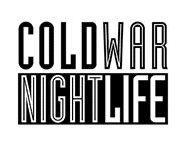 Lau Nau lives on a Finnish island that is shared with only a handful of people. The sea and the sky dominate the environment, and between them the inhabitants share their rock with trees and the wind. The summer days are long, but winter’s veil lifts only to reveal a grayness that soon fades.
Lau Nau lives on a Finnish island that is shared with only a handful of people. The sea and the sky dominate the environment, and between them the inhabitants share their rock with trees and the wind. The summer days are long, but winter’s veil lifts only to reveal a grayness that soon fades.
It is hard to disassociate Lau Nau’s creative output from that environment. Her last studio album was the soundtrack to Lotta Petronella’s film, Hem. Någonstans [EN: Home. Somewhere], which emerged from the amplifier like frozen vapour encloaking shards of Nordic ice.
The latest Lau Nau album, Poseidon, owes something to the sea, but also to urban scenes. It was not composed for film but serves as a soundtrack for life’s minor key stories. As Laura Naukkarinen explains:
I was playing my grandmother’s piano and shortly realised that I was composing songs that were the beginning of a new album instead of the film music I was working on. The songs wanted to be performed by a character called Lau Nau. It’s the melancholic, always dreaming part of me that stands quietly on the stage and shares fractured moments with the audience. The songs on Poseidon are small secular prayers and messages of love, sorrow and care. Poseidon is a god of the sea but also the name of a certain bar in Helsinki. He veils us in the fog when the night falls.
The title track is a wistful song that flirts with music-box nostalgia and dissolves like a memory. Lau Nau’s voice is delicate to a level that will make every man regret every heart they have broken. There are references to owls and moths, but the first Finnish phrase you ever learn may be, “Suudellaan, suudellaan” [EN: “Kiss me, kiss me.”]
For those looking for cultural reference points, there are signposts to Virginia Astley, Brian Eno, Ryuichi Sakamoto and Philip Glass, but Lau Nau’s music evades their shadows. Take “X y z å,” which relies upon minimalist arpeggiation and the sparkle of light on water, while Lau Nau’s voice rises from the waves like ozone. There is depth and contrast in the material that goes beyond mathematical niceties and tricks of phrasing.
Lau Nau’s words are carefully chosen; her poetry as sensitive as her tones. As she sings in “Unessa”:
Spirits in this forest
are webs among the heather
how light a sound can be
Poseidon ends in a crazy beautiful way with “Kun lyhdyt illalla sytytetään, ne eivät sammu koskaan” [EN: “When the lanterns are lit in the evening, they will never die out”]. Somewhere in the space between chamber music and experimentation, it is a reminder that, even if the landscape is epic in its scale and influence on the soul, the human experience is what makes it magical.
Lau Nau's home page: http://launau.com Poseidon at Fonal Records: https://www.fonal.com/shop/poseidon-cd/

